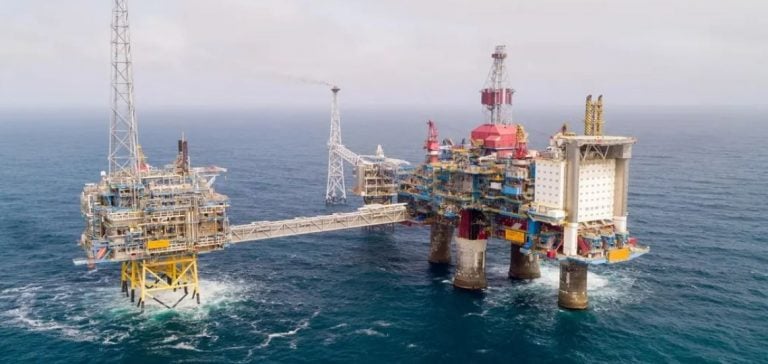The electrification of oil and gas infrastructures is emerging as a crucial solution for reducing extraction-related CO2 emissions.
According to an analysis carried out by Rystad Energy, the use of electricity from renewable sources or gas that was previously flared could reduce emissions by up to 80%.
On the Norwegian continental shelf, already electrified installations emit 1.2 kg of CO2 per barrel of oil equivalent (boe), compared with 8.4 kg before conversion.
This reduction illustrates the opportunities offered by the energy transition in a sector still heavily dependent on fossil fuels.
Norway, with its abundance of renewable resources, thanks in particular to its hydroelectric potential, is at the forefront of this transformation. Its main production sites are ideally located close to green electricity infrastructures, facilitating the conversion to a cleaner power supply.
By 2040, the country expects a 70% reduction in emissions from its offshore platforms, a goal that could be achieved more quickly if investment continues at the same pace.
A more complex transition for other producers
However, for other major oil-producing nations, implementing electrification of production sites may be more difficult.
The USA, Saudi Arabia and other countries face major logistical challenges, including the remoteness of onshore electricity infrastructure, a lack of suitable infrastructure, or limited renewable energy capacity.
These obstacles are slowing down the implementation of a complete energy transition in these regions.
Even under these conditions, partial electrification could be enough to generate significant emissions reductions.
Rystad Energy has identified some 30 so-called Premium Energy Basins (PEBs), which together account for over 80% of the world’s oil and gas production.
If 50% of these basins were electrified, global emissions could be reduced by 5.5 gigatons of CO2 by 2050, making a significant contribution to decarbonizing the sector.
The key role of flaring avoidance
In addition to infrastructure electrification, emissions reduction can also be achieved through better management of flaring, which consists of burning off surplus gas that has not been valorized.
Around 140 billion cubic meters of gas are flared every year, generating almost 290 million tonnes of CO2.
This practice, which is widespread in Africa, the Middle East and North America, represents a major challenge for industrial emissions reduction.
The introduction of economic incentives, stricter regulations and appropriate infrastructure to valorize this gas could help reduce the sector’s environmental impact.
In the basins identified by Rystad, such as Rub al Khali and Central Arabian, efforts to limit flaring combined with electrification could significantly reduce CO2 emissions.
These two basins alone could avoid the emission of 370 million and 251 million tonnes of CO2 respectively, over the period 2025-2030.
Financial outlook and challenges
The electrification of oil installations is not just about environmental issues.
For many in the industry, it’s also a question of profitability.
Using electricity from renewable sources would not only reduce emissions, but also cut long-term operating costs.
In some cases, electrified sites could even sell the surplus energy produced, creating a new source of revenue.
However, the transition requires substantial investment and careful planning.
Electricity infrastructures need to be adapted, particularly in areas remote from mainland grids.
The economic viability of these projects also depends on the ability of governments and companies to work together to develop innovative solutions and overcome technical obstacles.
Implementation challenges
Although promising, the electrification of oil installations faces many obstacles, particularly in terms of initial costs and infrastructure adaptation.
In remote areas, technical challenges linked to the supply of reliable electrical power must be overcome to guarantee continuity of operations.
Furthermore, short-term economic incentives may not be sufficient to encourage all players to adopt these new technologies.
Nevertheless, Rystad Energy’s projections show that partial electrification of infrastructure could already result in substantial emissions reductions.
In a context where regulatory and economic pressure to decarbonize the energy sector continues to grow, these initiatives could become unavoidable.






















